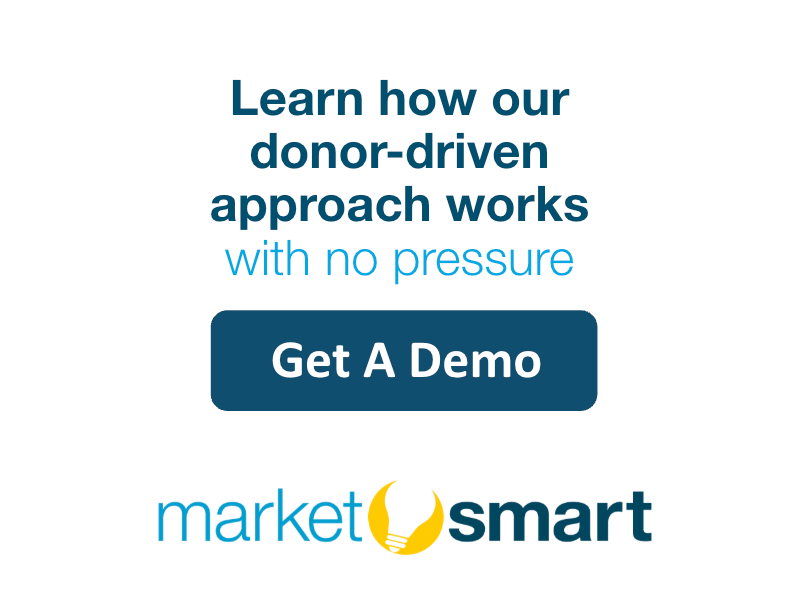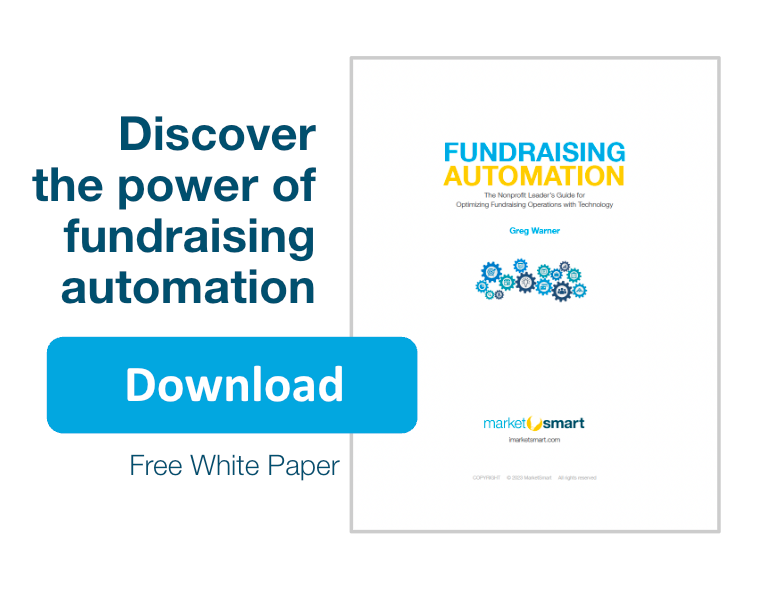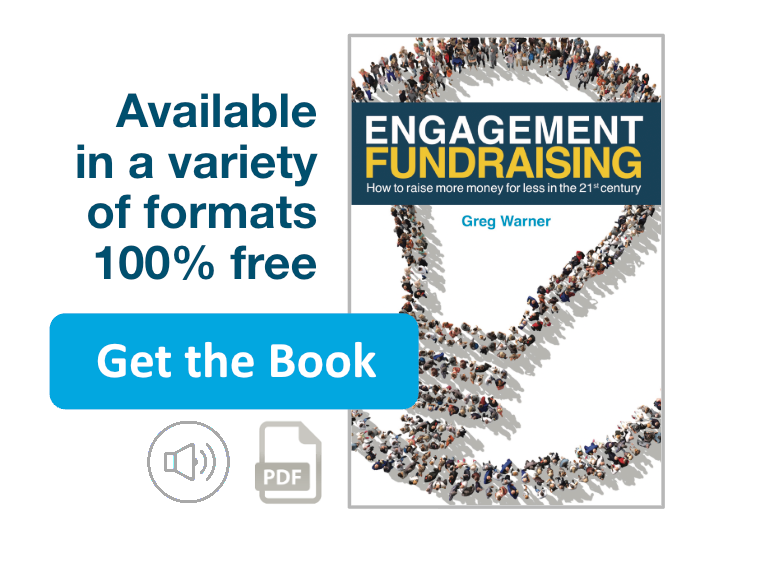Some gift officers have dozens of prospects in their caseloads. Others have over a hundred. Dunbar’s number aside, we all know it’s impossible to maintain active and enriching relationships with over a hundred people at once.
Sometimes, to make matters worse, a new batch of supposedly qualified major gifts prospects gets shoveled your way, and you have to reach out and add them to your increasingly untenable workload.
Isn’t major gifts fundraising supposed to be about forging relationships with donors who want to give?
Actually…yes! That is what it’s about.
The key to doing this well, especially if you have more prospects than you can handle, is to learn how to extract the best prospects and focus the majority of your time on them.
How do you do that?
Here are five questions to ask yourself about each donor prospect on your list.
1. Does Your Organization Have Time for This Person?
Uh oh. If you’ve got 150 prospects in your caseload, you already know you don’t have time for all of them. It takes time and resources to invest in any relationship, and this is no less true with your best prospects.
Don’t miss the point of this question.
If you identify a donor as being a very strong prospect, but you don’t have time to invest in a relationship with them, then they aren’t going to be a good prospect. This is a two-way street. They might be all fired up about giving to your organization, but if it takes you three weeks to respond to their emails, their passion will fizzle.
That’s why 150 people is too many for one gift officer. You must choose the prospects you want to prioritize, and devote the bulk of your time to them.
2. Does This Prospect Truly Have Capacity to Be Heroic?
Your qualification and cultivation processes need to extract the right information about a donor before a gift officer reaches out to deepen the relationship.
You must have a realistic picture of this donor’s actual capacity.
Sure, the wealth screener spreadsheet might say this donor has $1.5 million in assets, but what if $1.2 million of that is tied up in their house? Or what if they are paying $80,000 a year for their oldest kid to attend college, and the younger sibling is a senior in high school?
Giving capacity isn’t just what some computer spits out. Giving capacity relates to real life, what’s actually going on in the donor’s life at this time. They may have had more capacity five years ago even though their overall net worth is higher now. They may have more capacity five years down the road than they do now.
You need to know this before devoting your valuable time to this relationship.
3. Does This Prospect Know Your Organization Deeply?
You could call this the ‘mind-reading’ question. A hero prospect knows what your organization needs without having to be told. They are already involved in some way. They know your story. They know the needs. They know the mission and the various programs in place to carry it out. If asked, they could explain it (sell it) to their friends, family, and coworkers.
Major donors don’t give major gifts to unfamiliar organizations.
They might plop down a few thousand dollars at a fundraising event a friend invites them to. And that’s great. But they won’t give a transformational gift unless they are deeply familiar, engaged, and committed to your cause.
Develop this understanding and passion through your donor cultivation process before the gift officer gets heavily involved.
4. Does This Prospect Consider Your Nonprofit Irreplaceable?
Irreplaceability is a hallmark of the strongest friendships. The sentiment goes like this: ‘No one else knows me like you do.’
That’s how the top major gifts prospects feel about your organization. What you’re doing either isn’t being done at all by other organizations, or at least, no one else does it as well as you.
A donor who supports four different organizations all doing disaster relief is less likely to make a transformational gift to any single one of them. That donor prefers to spread their money around. They’re into the cause, not the specific organizations. And that’s great, and you shouldn’t ignore that donor completely.
But you also shouldn’t devote extensive time from a gift officer to them, because they do not perceive your organization as irreplaceable. If your nonprofit folded, they’d just keep giving to the other three.
5. Does This Prospect Align Intimately with Your Mission?
What is it about your mission that motivates, engages, and compels this prospect to want to be involved with your organization?
This is not a transactional relationship.
Something about your mission connects with them on a very personal level. It could be based on their values, their faith, their family history, their life experience, or many other things. The best major gift prospects consider your nonprofit to be an inseparable part of your life.
And again, this can be discovered and drawn out through an effective donor qualification and cultivation process.
How Many of These 5 Questions Must Be Answered with a ‘Yes’?
All of them.
If you answer ‘no’ to any of these five questions, then that prospect is highly unlikely to be willing to give a transformational gift at this time.
But this doesn’t mean that can’t change in a few years. Don’t abandon them.
Again, what we’re talking about here is which prospects your gift officers should be devoting the bulk of their time to pursuing relationships with, right now.
There are other ways to follow up with prospects who answer ‘yes’ to four or fewer of these questions. And, how you follow up might depend on which questions.
For example, if the only question with a ‘no’ is question 2 about giving capacity, then you simply need to wait and see if that changes in your favor. Even twenty years down the road, such as in an estate plan, that donor’s giving capacity may rise to a level that justifies a greater investment of time from you. So keep them on your radar. Keep cultivating. Stay in touch.
If a prospect doesn’t see your organization as irreplaceable, that’s a more difficult belief to instill because it’s such a personal feeling for a donor.
How Do You Qualify and Cultivate Major Donor Prospects?
This is the ultimate question, right?
It’s easy to acquire a wealth screening list. And it’s easy to match them up with gift officers and then blame them when the prospects don’t give (because you’re asking the wrong people).
What’s much harder – but the most important task of all – is to qualify and cultivate your major gift prospects. You must get them to a point where it will be worth your greater investment of time and resources to send out a gift officer and start a more personal relationship.
How do you do that? The qualification and cultivation processes take tons of time too, right?
Well – they do if you have people doing it instead of software automation.
This is what MarketSmart does. It’s our whole business. We have developed a software platform that automates major donor qualification and cultivation. The software takes care of the key steps of helping donors self-identify as being ready to talk to a gift officer and possibly give a major gift.
That way, your gift officers only meet with people who want to meet, and are ready to talk seriously about giving a transformational gift. All the other prospects are being qualified and cultivated by the software.
In other words, our software will tell you which prospects can say ‘yes’ to all five questions listed above.
How well does our system work?
Well – it works well enough that we give a 10:1 ROI Guarantee to all new clients. We guarantee you will make at least ten times as much as you spend on our software.
Want to see how we do it?
Sign up for a Free Demo of MarketSmart’s tech-enabled donor discovery software.
Related Posts:
- The case for marketing automation: Why nonprofit fundraising operations should automate tasks to optimize staff performance
- The top qualification and prioritization data points you should consider before you reach out to your supporters to build a caseload
- How Fundraisers Can Reconcile the Competition that Exists Between Your Donors’ & Administrators’ Hero Stories





